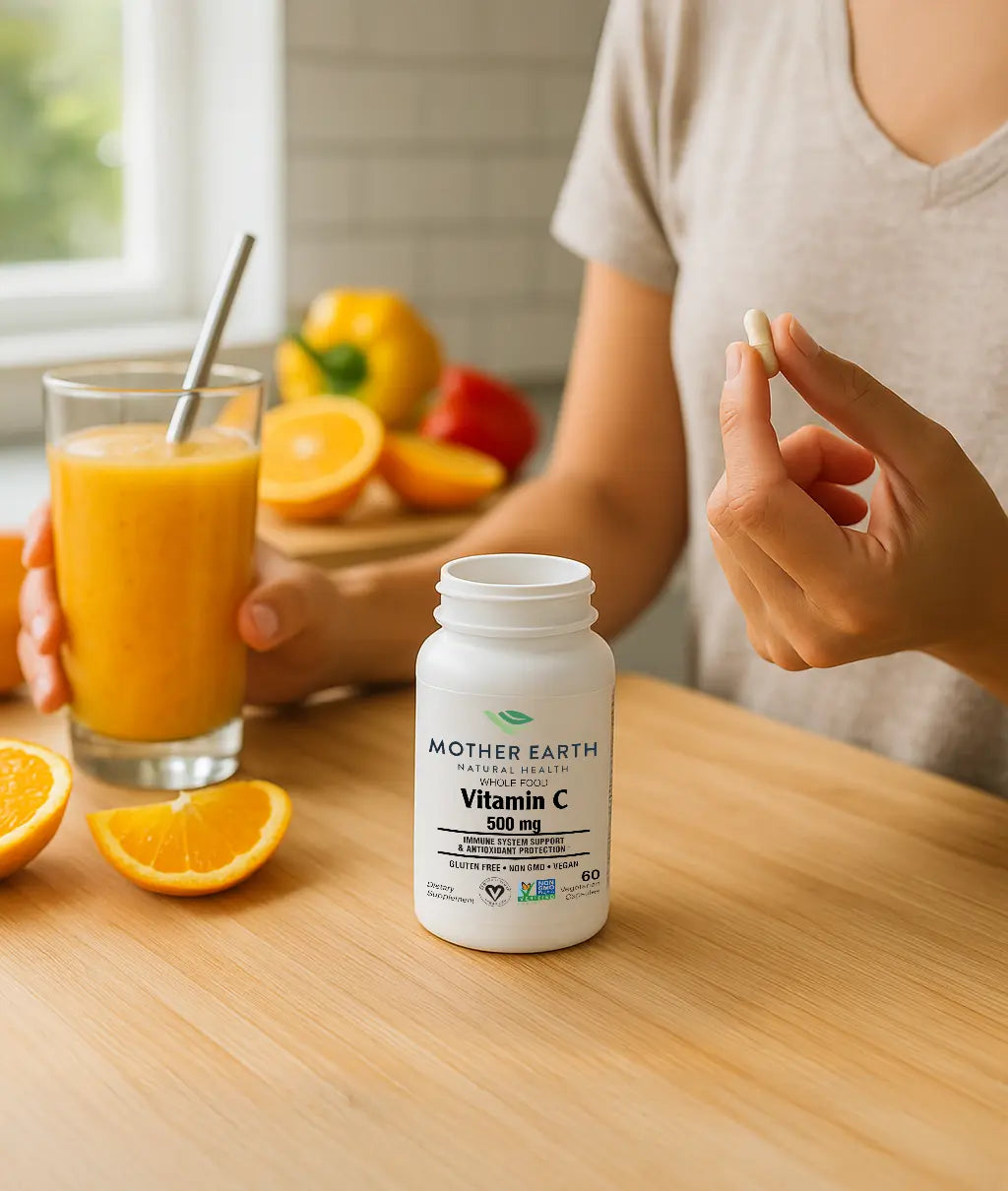
5 Trusted Supplements to Support Your Immune Health
Share
In today's high-paced environment, maintaining immune health is more important than ever. With constant exposure to environmental stressors, many individuals are turning to natural options to support their body’s defenses. Whether you're looking to complement your healthy lifestyle or seeking added wellness support, certain supplements may help your immune system stay resilient. Here, we explore five supplements commonly used to support immune health.

1. Vitamin C: An Antioxidant Ally
Vitamin C is widely recognized for its role in supporting immune health. As an antioxidant, it helps protect cells from oxidative stress and supports healthy immune cell function. It may also assist in maintaining the integrity of the skin barrier—your body's first line of defense.
Natural sources include citrus fruits, bell peppers, and strawberries. Supplementation is a convenient way to increase intake, especially during times of heightened need. Always choose a trusted brand and follow usage recommendations provided by a healthcare professional.
Internal Link: Learn more about the role of antioxidants in wellness
2. Zinc: Supporting Cellular Defense
Zinc contributes to the maintenance of immune cells and supports communication between them. It plays a role in healthy inflammation balance and helps maintain the protective lining of the respiratory tract.
Zinc is found in foods like legumes, nuts, and shellfish. For those with limited dietary intake, supplementation in forms like zinc gluconate or citrate may be helpful. Consult with a professional to determine appropriate amounts.
Internal Link: See our guide to daily nutrition basics
3. Vitamin D: The Sunshine Nutrient
Vitamin D helps regulate immune responses and supports the health of various immune cells. Many people may have low vitamin D levels, especially during months with limited sun exposure.
Supplementation may help support immune balance, especially in the winter season. Available in tablets, capsules, or drops, it's best to check your levels with a provider before starting a regimen.
Internal Link: Explore more about vitamin D and overall health
4. Probiotics: Gut-Immune Connection
Your gut houses much of your immune system. Probiotics, or beneficial bacteria, can help support gut barrier integrity and promote balanced immune activity. They may also help maintain microbial diversity, which is important for resilience.
Fermented foods such as yogurt, kimchi, and kefir offer natural sources. Supplement forms vary by strain and function—some may support seasonal wellness or general digestive balance. Choose multi-strain products from credible sources.
5. Oregano Oil: Nature-Inspired Wellness Support
Oregano oil contains plant compounds like carvacrol, which are known to help support the body's natural defenses. It may help balance immune activity and promote healthy responses to seasonal environmental factors.
Used traditionally in herbal wellness, oregano oil is typically available in liquid or softgel form. Ensure proper usage and consult a professional before starting any herbal supplement.

Choosing the Right Supplements
While supplements can support overall wellness, they are not substitutes for healthy habits. A balanced diet, restful sleep, movement, and stress management are foundational. Choosing supplements that align with your needs—and checking with a healthcare provider—can help you get the most benefit.
Look for:
- Products from brands that offer third-party testing
- Labels free of unnecessary fillers or additives
- Supplement facts and transparency in ingredient sourcing

FAQs: Immune Support and Supplements
Q1: When is the best time to take immune-support supplements?
A: This varies by supplement type. For example, vitamin D is often taken in the morning with food, while probiotics may be more effective on an empty stomach. Always follow label instructions.
Q2: Can I take multiple immune-support supplements at once?
A: Many people combine supplements, but it's best to ensure they don't interact or overlap in high doses. Consult your provider to create a personalized approach.
Q3: How long before I notice results from supplements?
A: Effects can vary by individual and supplement type. Some may notice support within a few days, while others may need several weeks of consistent use.
Q4: Are supplements safe for everyone?
A: Not always. Those with medical conditions, allergies, or who are pregnant should speak with a healthcare provider before starting any new supplement.
Q5: What’s the difference between food-based and synthetic supplements?
A: Food-based supplements may be more easily absorbed, while synthetic forms may offer higher concentrations. Quality and bioavailability vary by brand and formulation.
